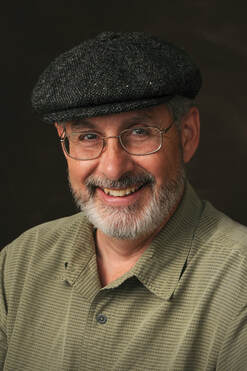
REX OWENS published his first novel in the Irish Troubles Series, Murphy’s Troubles, in November 2013 and his second, Out of Darkness, in June 2015. The third novel, DEAD RECKONING, was published in April 2018 by HenschelHaus Books – Three Towers Press. His fiction explores motives in making life changing decisions and searches for common themes in our human journey. Rex has a weekly blog at www.rexowens.us; and is the host of My World and Welcome to It on 103.5 FM KSUN, broadcast on the 2nd and 4th Tuesdays at 9:30 am. The radio program is streamed live at: www.sunprairemediacenter.com. e-mail him at [email protected].
Dave Watson: How did third book come about?
Rex Owens: There is a book club in Sun Prairie and they read both Murphy’s Troubles and Out of Darkness. I’ve met with them to discuss both books. In our discussion about Out of Darkness they were not satisfied that my protagonist, Ian Murphy, found the redemption he sought and they encouraged me to continue the story. At the Lakefly Writers Conference in 2017 I heard a presentation on how an author used writing to overcome personal trauma in her life. I was intrigued with that idea and thought I could use that as a mechanism for Ian Murphy to overcome his guilt. Another Irish author, Danny Morrison, wrote a book about his IRA experience called The Wrong Man which he turned into a stage play. That is where I got the idea for Ian Murphy to write a stage play in the final book in the series.
DW: This is the end of the trilogy – was it hard to wrap up? The end seems open ended will there be more?
RO: This is definitely the final Ian Murphy book. While writing the book I promised myself this would be the final book in the series. I never intended to write a series when I published the first book, Murphy’s Troubles. In the first two books Ian seeks redemption from others. In the final book Ian makes an act of contrition and overcomes his alcoholism without needing external acceptance.
DW: What is your relationship with Ireland?
RO: Well, my DNA test proved I am mostly Irish. I’m fascinated with a country that is devoted to the written word. They have an organization called Aosdana which gives writers an annual income to give them time to write. Education through college is free. The Irish love to talk and tell stories.
DW: How will Brexit impact Northern Ireland and the Republic of Ireland?
RO: Northern Ireland was officially created in 1921 to end the civil war in Ireland. Northern Ireland is predominately Protestant, Catholics are about 10% of the population. The two countries have always had a “soft” border meaning there are no barriers and a passport is not needed to travel between countries. The Republic of Ireland wants to continue to stay in the EU, the country benefits daily. Northern Ireland is part of Great Britain and wants to exit the EU. By EU rules if Northern Ireland exits they will require a “hard” border and the fishing rights guaranteed by the EU would disappear. Right now the Northern Ireland question is a major issue in delaying Brexit.
DW: Ian Murphy deals with grief through and self-expression through art, was that your intent?
RO: Yes I intended to demonstrate how art can be used in a creative person’s life to resolve life issues. The title, Dead Reckoning, comes from a nautical term for a method of navigating. Ian uses art to navigate through his life.
DW: What is next for you?
RO: I heard story on NPR about women who delivered books and magazines to people in remote rural areas during the Great Depression. They were called Pack Horse Librarians. It was one of the few programs designed to give women work during the Depression. I found the story fascinating and thought it would be a great historical fiction book. I did a little research and found there are no fiction works on this subject. Next, I consulted with two of my long time writing teachers/mentors and asked if they found the topic interesting. Both loved the idea. I’ve spent about two months researching and have begun the initial draft. In June I’m traveling to eastern Kentucky to learn more about the people and geography of the area where my book will be set.
DW: What is my favorite cinematic moment?
RO: My favorite moment is the ending of Citizen Kane when you see a partial face that says, “Rosebud." It was the perfect ending.
Clip: Citizen Kane
Founder and editor of Movies Matter, Dave Watson is a writer and educator in Madison, WI.

